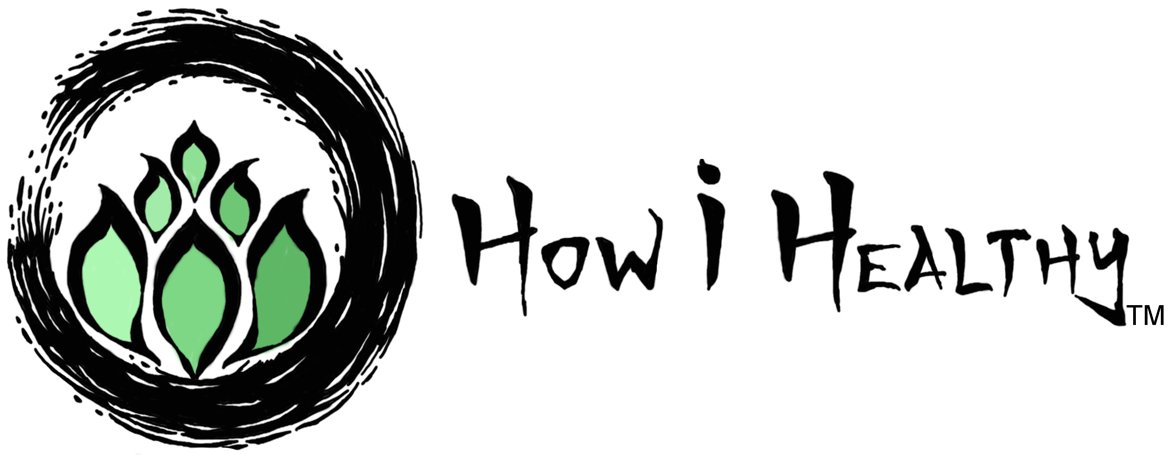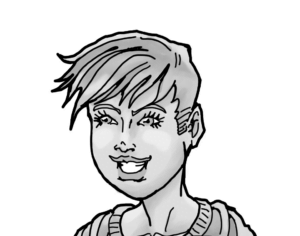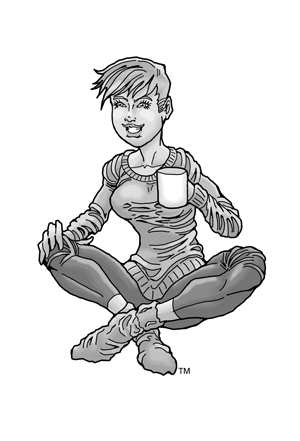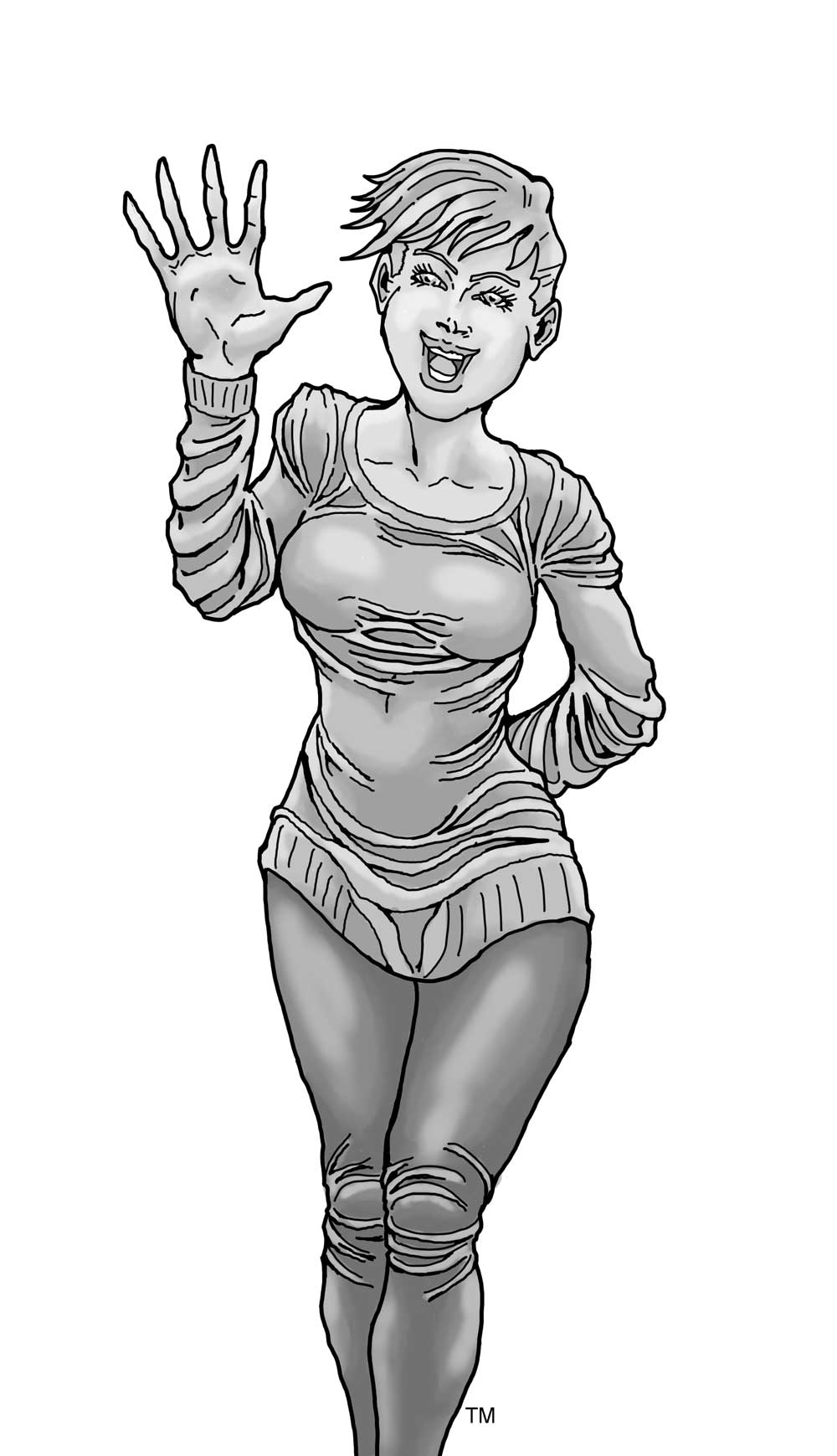In This Article, We'll Cover:
- Why Cleaning Products Ain’t Clean
- Why Water-Free Products Matter
- Why Microfiber Isn’t Great
- How i Healthy’s Favorite Zero Waste Cleaning Products (Spoilers! They’re water-Free, Plastic-Free, & Natural too!)
You can achieve zero waste cleaning with just a few things you might already have around the house.
No expensive water-filled natural cleaners.
No subscription boxes.
No uni-purpose tools or ‘must haves!’
No multi-level marketing collections.
No complicated essential oil ‘recipes’.
But before we get there, let’s talk about why some cleaning products aren’t what you want sprayed all over your home.
Problems with Cleaning Products
Chemicals can lurk in many household products:
- Ammonia
- Fragrance/phthalates
- Triclosan (used in antibacterial products)
- Parabens
- Petroleum derived products
- Preservatives
- Propylene Glycol
- Polyvinyl Alcohol
- Sulfates
- VOCs like Toluene, Formaldehyde, and Styrene
(1, 2, 3, 4, 13)
(The Chemical Guide dives deep into why these are harmful, & how to limit exposure)
And thanks to Greenwashing Scams, companies can market products under vague “all-natural” labels when there’s nothing natural about them.
Chemicals aside, many cleaning products are also single-use plastics.
Cleaning Products Are Single-Use Money Pits
It’s been a long time since I’ve even walked down a store’s cleaning aisle, the smell alone deters me.
Another turn off is the single-use and disposable cleaning products.
Throw-away dusters, toilet bowl bleach pods, single-use wipes. The uni-tools of home cleaning are staggering. It’s the exact opposite of zero waste cleaning.
The cleaning aisle is a textbook case study on single-use plastic, harmful chemicals, and money pits.
Those are all things I don’t want.
Cleaning Products Are Water-Based
I loathe water-filled products.
I explain why, (perhaps too much), in My Best Sustainable & Ethical Tips. But in short, adding water (or any liquid) to a product adds weight & bulk. And it often means plastic packaging too.
Why does added bulk and weight matter?
Because:
Added weight = heavier products.
Added bulk = fewer products per truck/boat/plane shipment.
Fewer products per shipment = more shipments.
More shipments = more carbon emissions
(6)
Transportation emissions are one of the biggest carbon footprints in the USA. (7)
Eliminating water, lightening loads, and reducing product size improves transportation efficiency. That can translate into reduced carbon footprints.
That’s why pre-made cleaners and catchy subscription-based cleaning programs don’t impress me. Even “natural” or “non–toxic” ones.
Plus, eliminating water means I’m not paying for something I already have. I’ve got water already. I can add my own.
I’d rather buy a concentrated product, like a powder or bar soap, that I add water to than a watered-downed & ready-to-go product.
That’s why I use Unpaste™ Tooth Tabs instead of tube toothpaste.
And love Vermont Bulk Bar Soap instead of a body wash.
And Suds & Co Shampoo/Conditioner Bars.
See my favorite Natural & Water-Free Laundry Powder review too!
And home cleaning products are an excellent opportunity to eliminate water. And get more actual cleaning agent for your buck.
Here’s how:
My Favorite Zero Waste Cleaning
My favorite products need to meet the How i Healthy Standard as closely as possible. Here’s a recap:
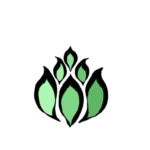
The How i Healthy Standard
Our favorite products/brands meet as many of these conditions as possible.
Healthy body, healthy planet, & healthy sex means:
- Align with My Best Sustainability & Ethical Tips
- As Local as Possible
- Cruelty-Free
- Doesn’t Contain these Harmful Chemicals
- Environmental and/or Socially Responsible Company
- Ethically Made: Fair Trade, Living Wages, Safe Worker Conditions
- Gender-inclusive
- No Greenwashing Scams
- Organic & Sustainably Harvested Ingredients
- Pass How i Healthy’s Counterfeit Vetting Process
- Purchased Through/From an Ethical Shop/Marketplace.
- Zero Waste / Plastic & Bioplastic-free / Home Compostable
- 1% for the Planet®, B Corporation®, Green American Business®, or similar credentials
Here's How I Clean: Zero Waste Cleaning
Yup. That’s it.
Minimal, yet total, home cleaning. Without plastic. Without complicated ‘recipes’. Without subscriptions. Without breaking the bank.
Just add water! (And a cleaning rag or sponge)
Cleaning Rags: Reuse, Don’t Buy. Avoid Microfiber.
Swapping out single-use paper towels for cloth helps the Earth and our wallets.
But not all cleaning cloths are clean.
I’m talking about microfiber.
The word “fiber” might conjure an image of natural fabrics like cotton, wool, or hemp.
But, that’s not the case.
Microfiber refers to woven polyester, acrylic, or nylon.
In other words: Plastic. (5)
Plus, microfiber releases plastic particles called microplastics that pollute water supply, oceans, and landfills. (5)
It travels via the grey water from washing machines and from dryer lint.
35% of microplastic pollution comes from synthetic clothing. (5)
But microfiber is a step up from single-use disposables like paper towels or disposable dusters. If you already have them then perhaps keep them and use what you have. Sometimes buying more isn’t the answer.
If your microfiber bothers you though, one solution could be GuppyFriend®.
GuppyFriend® is a washing bag for microfiber fabrics. It catches microfiber particles that would otherwise pollute water systems. Profits from GuppyFriend® go to STOP! Micro Waste and STOP! Plastic Academy, two nonprofits dedicated to raising awareness of microplastic dangers.
Note: I’ve not tried GuppyFriend®. I do not own synthetic clothing or microfiber cloths. But, after researching GuppyFriend®, I thought it could be a resource for folks who might. (And some reviews say this makes a great delicate laundry bag too).
Here’s what I do for cleaning rags. A glorious old T-shirt
For Cleaning: T-Shirt Rag
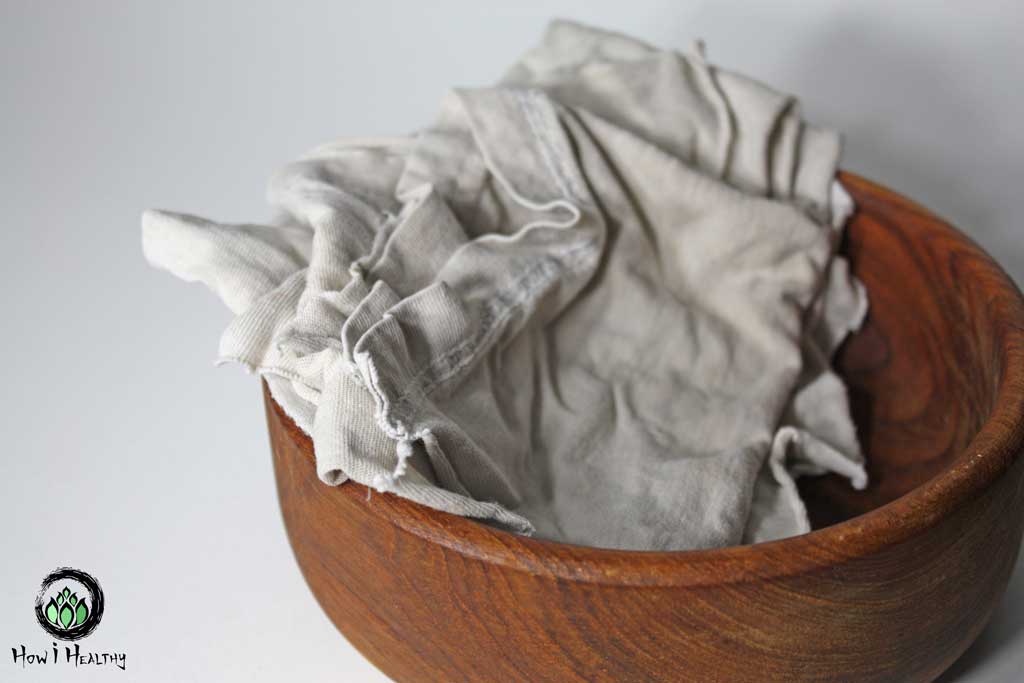
Simply cut up some old cotton T-shirts!
I promise those rags in the photo were clean! The white T-shirts are not so white anymore. Next time I’ll use an old dark T-shirt, so they don’t look so dirty even when clean.
Other great options?
Linen! I have a flax linen towel that works wonders on mirrors. No streaks. Just shine!
For Scrubbing: Loofah Sponge
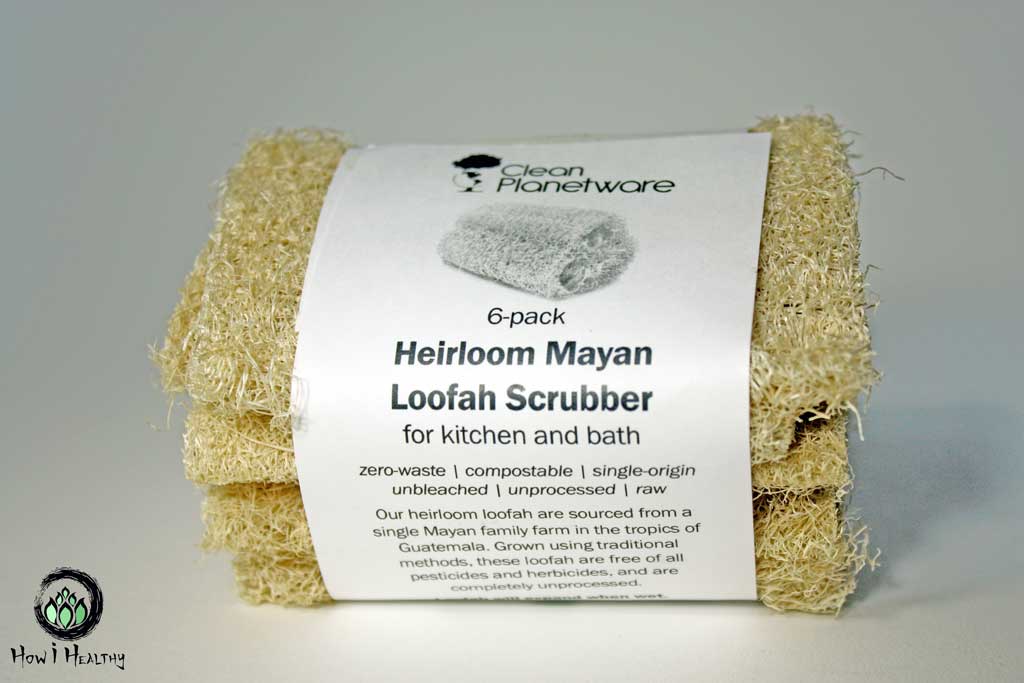
These awesome plant-based, unprocessed, and chemical-free sponges are home-compostable and have no plastic.
And they’re quick drying = stink free!
I use them on dishes, extra grimy things, and for my body.
Now that we got our rags and sponges sorted, what do we use with ‘em?
For Soap & Cleaner: Water-Free Products
My go-to cleaning products are:
- Meliora® All-Purpose Cleaner Tablets
- And for dishes, I use Meliora® Castile Soap
If I need a little more scrubbing action, I just make a paste of baking soda and water and scrub away with my loofa.
Goodbye liquid products and all the unnecessary plastic you’re packaged in!
Meliora® All-Purpose Cleaner Tabs & Soap
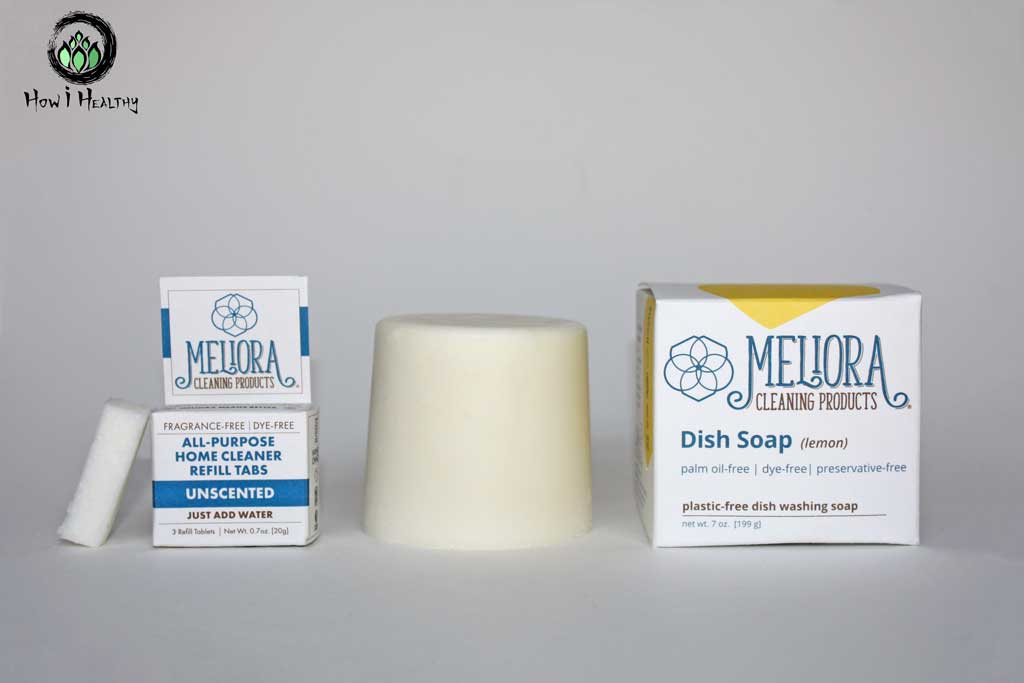
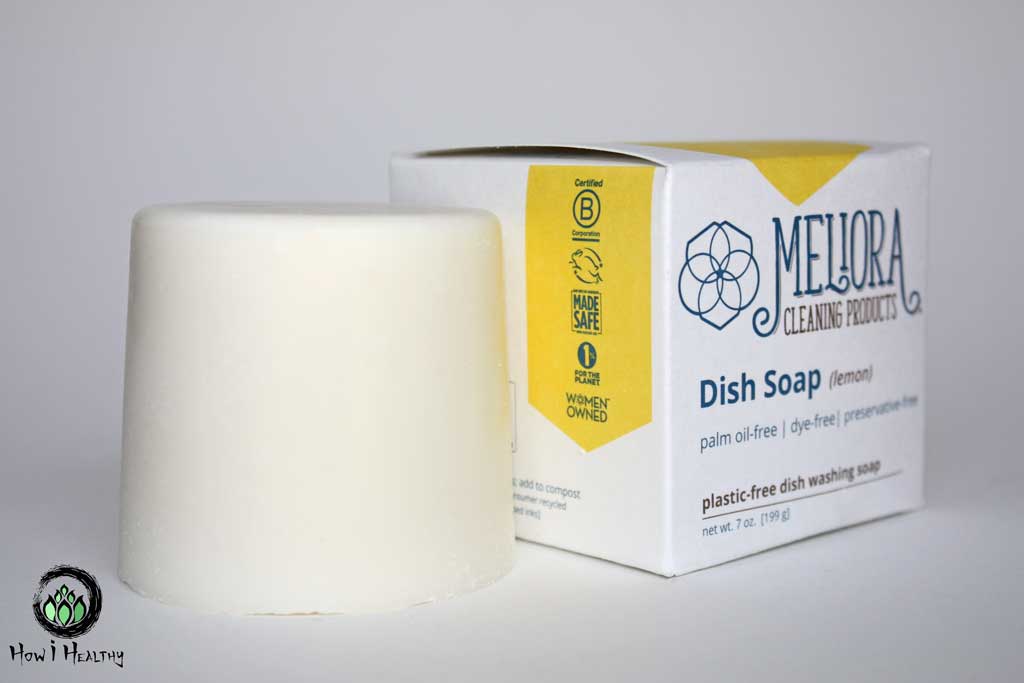
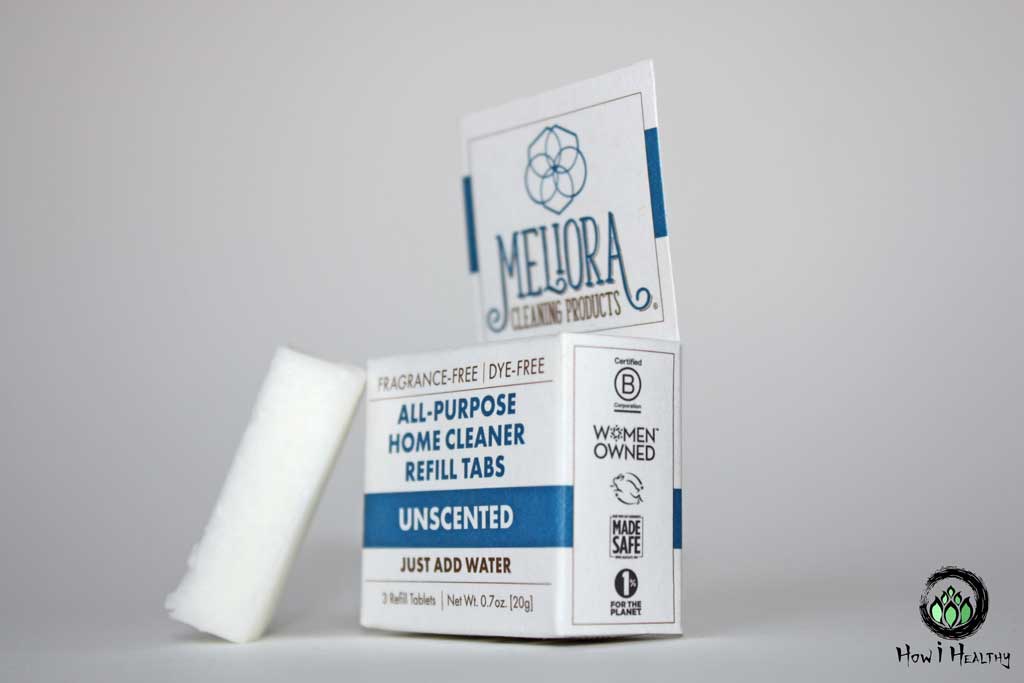
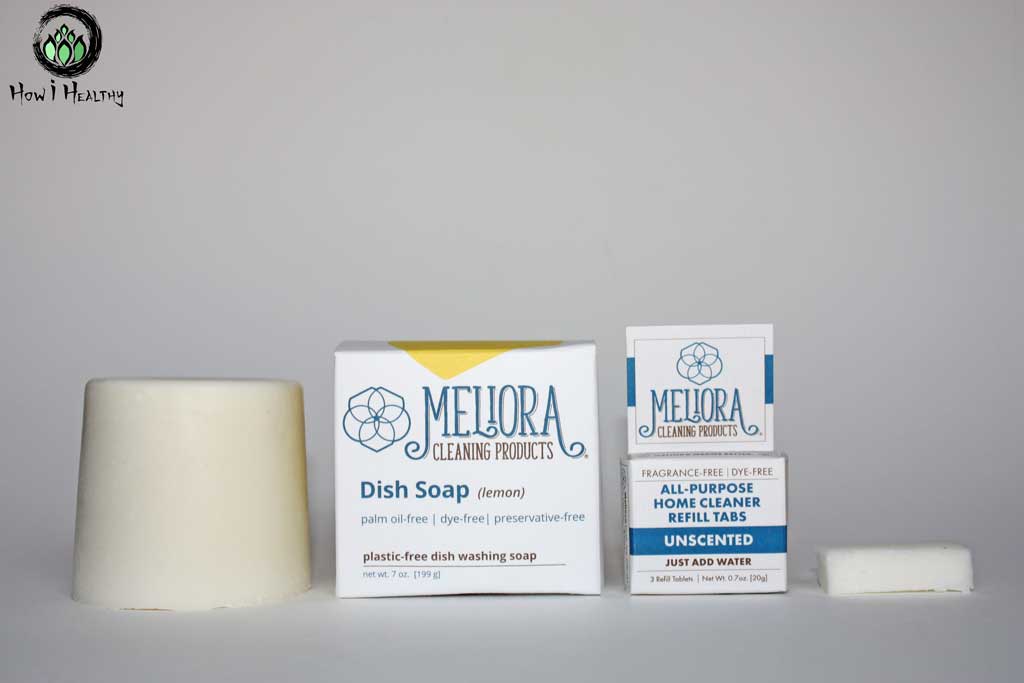
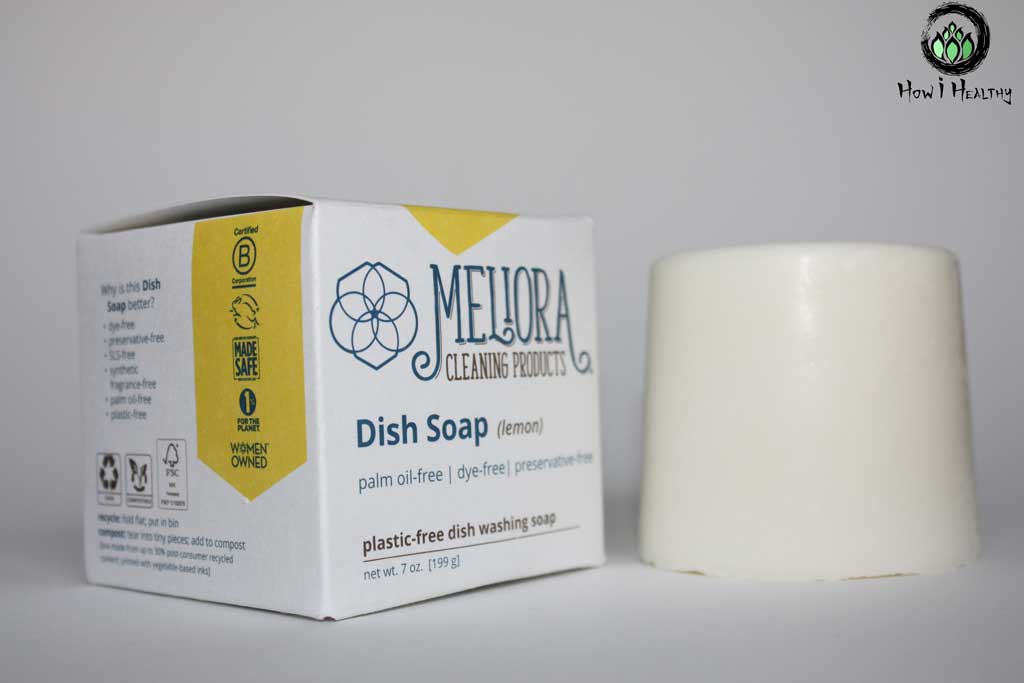
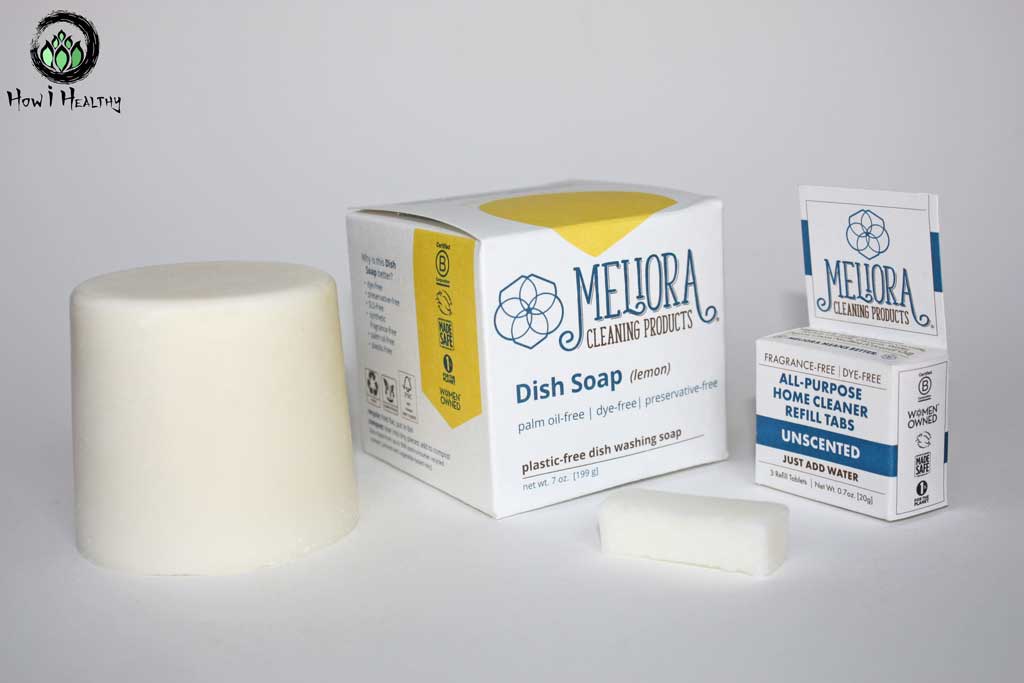
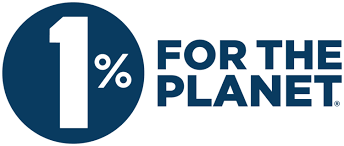
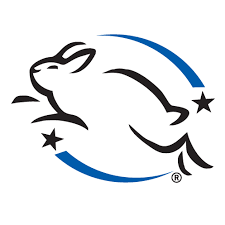
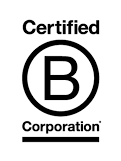
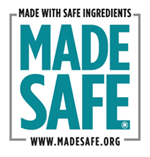
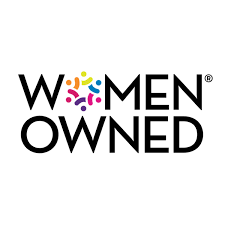
Product Kudos
Origin: Chicago, Illinois. USA.
End of Life: Recyclable/compostable paper packaging.
Ingredients/Packaging:
- Meliora® All-Purpose Cleaner Tablets: Vegetable Soap, Glycerin, Water, Organic Coconut Oil.
- Meliora® Castile Bar Soap: (Lemon Scent): Vegetable soap, Sodium Cocoate, Sodium Sunflowerate, Glycerin, Water, Organic Coconut Oil, Organic Sunflower Seed Oil, Organic Citrus Medica Limonum (Lemon) Peel Oil.
- Packaged in paper packaging.
- Zero waste cleaning!
(8, 12)
Why It’s Awesome:
- 1% For the Planet®, B-Corp®, MADE SAFE®, Woman OwnedTM, and Leaping Bunny® certified!
- Biodegradable, groundwater-safe, and septic-safe.
- Plastic-free, palm-oil free, fragrance-free, cruelty-free. The list goes on and on.
- Water-free too!
- Works! The cleaner can cut through grease and grime. And without harsh chemicals.
(6, 7, 8, 10, 11)
Company Kudos
- All products are made on the West Side of Chicago by people paid a living wage.
- Annual sustainability reports made available online with new sustainability goals every year too!
- Eliminated all single-use plastic from product line in 2020.
- Lobbied in support of the cleaning product Right-To-Know Act, that would require cleaning products to list their ingredients on product packaging.
- Through 1% For the Planet® and Women’s Voices For The Earth, Meliora® donates 2% of annual revenues goes to environmental and charitable nonprofits. Also donates to My Black, My Hood, My City, a Chicago-based Black-founded & operated nonprofit.
- Uses a local Chicago-based supplier to source global organic & sustainably grown/produced coconut oil and uses Wisconsin-grown sunflower oil.
- Bonus? Meliora® has awesome Water-Free & Laundry Care Products too!
(8, 9, 10, 11)
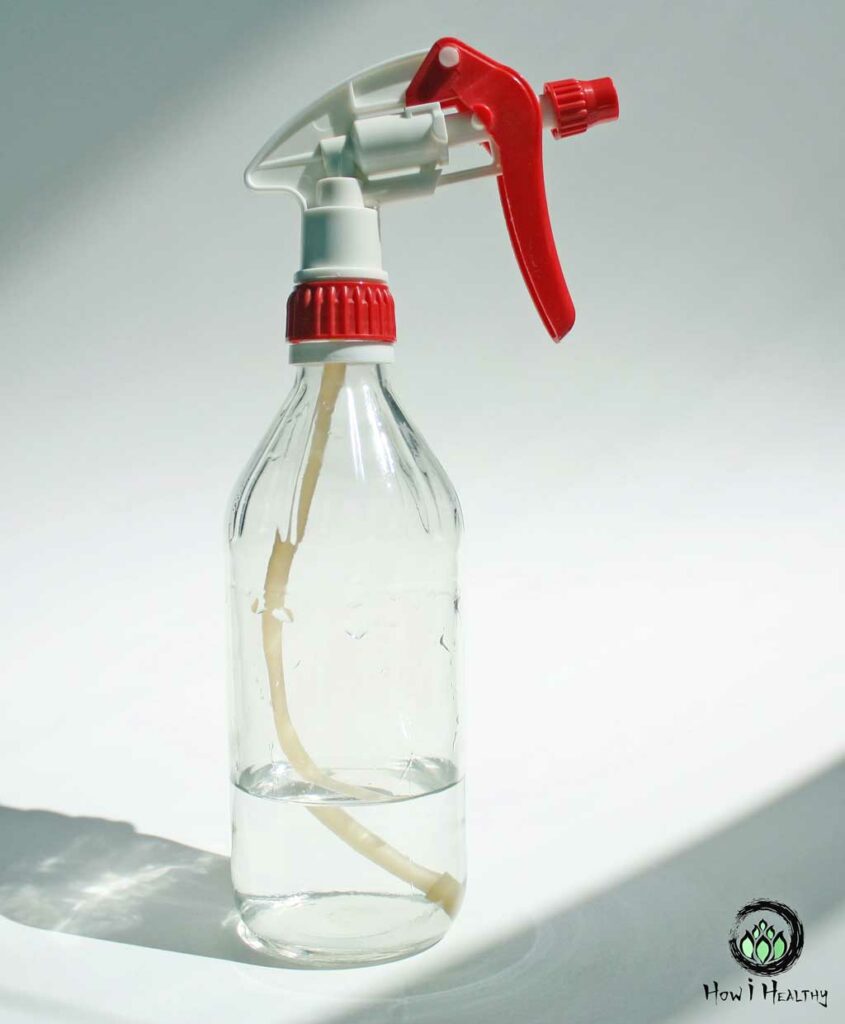
Here’s the super cheap (basically free) DIY-Glass Spray Bottle I use with my tablets.
The Takeaway Message


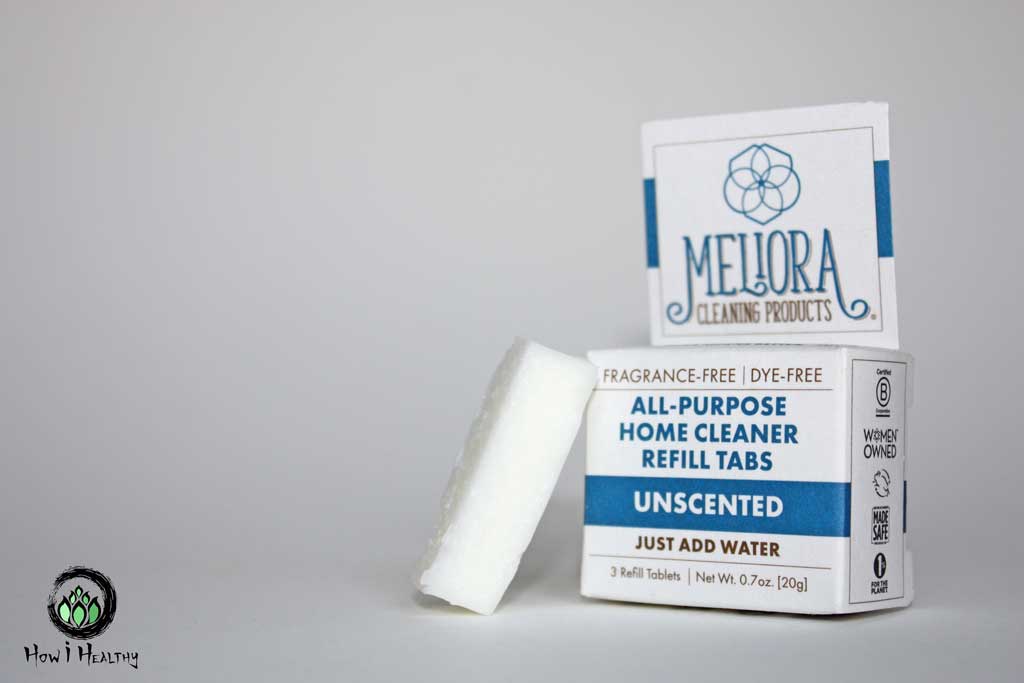

Zero waste cleaning doesn’t have to be full of chemicals, water-ladened, expensive, single-use, or complicated.
Products I Use:
- A DIY glass spray bottle
- Baking Soda
- Meliora® All-Purpose Cleaner Tablets
- Meliora® Castile Soap
- Water (That I add myself)
Cleaning Tolls I Use:
- A compostable & traditionally-grown Loofah from a Mayan family farm in Guatemala.
- T-Shirt rags and denim rags from old jeans for most surfaces.
- A 100% flax linen towel for mirrors and glass.
That’s How i Healthy!
-Artemis
- Zota, Ami R et al. “Reducing chemical exposures at home: opportunities for action.” Journal of epidemiology and community health, vol. 71,9 937–940. 29 Jul. 2017, doi:10.1136/jech-2016-208676. https://pubmed.ncbi.nlm.nih.gov/28756396/
- Dunagan, Sarah C et al. “Toxics Use Reduction in the Home: Lessons Learned from Household Exposure Studies.” Journal of cleaner production 19,5 (2011): 438-444. doi:10.1016/j.jclepro.2010.06.012. https://www.sciencedirect.com/science/article/abs/pii/S0959652610002246
- Gerster, Fabian Melchior et al. “Hazardous substances in frequently used professional cleaning products.” International journal of occupational and environmental health 20,1 (2014): 46-60. doi:10.1179/2049396713Y.0000000052. https://pubmed.ncbi.nlm.nih.gov/24804339/
- Kore, A M, and A Kiesche-Nesselrodt. “Toxicology of household cleaning products and disinfectants.” The Veterinary clinics of North America. Small animal practice 20,2 (1990): 525-37. doi:10.1016/s0195-5616(90)50043-1. https://pubmed.ncbi.nlm.nih.gov/2180194/
- “Microfiber Pollution: Our Clothes Pollute the Oceans.” Ocean Clean Wash, oceancleanwash.org/
- Berners-Lee, Mike. How Bad Are Bananas?: The Carbon Footprint of Everything. Profile Books, 2010. https://books.google.com/books/about/How_Bad_Are_Bananas.html?id=fCsEvr8lcScC
- “Carbon Pollution from Transportation.” EPA, Environmental Protection Agency, https://www.epa.gov/transportation-air-pollution-and-climate-change/carbon-pollution-transportation
- “All-Purpose Home Cleaner.” Meliora Cleaning Products, https://meliorameansbetter.com/products/all-purpose-home-cleaner-spray-refill-tablets.
- “Our Story.” Meliora Cleaning Products, https://meliorameansbetter.com/pages/about-us.
- “Sustainability.” Meliora Cleaning Products, https://meliorameansbetter.com/pages/sustainability.
- Meliora Sustainability Report. Meliora Cleaning Products, 2020, https://cdn.shopify.com/s/files/1/0648/0001/files/2020_Meliora_Cleaning_Products_Sustainability_Report.pdf?v=1619023886.
- “Plastic-Free Dish Soap for Hand Washing – Package-Free.” Meliora Cleaning Products, https://meliorameansbetter.com/products/dish-soap-bar-zero-waste.
- Rolsky, Charles, and Varun Kelkar. “Degradation of Polyvinyl Alcohol in US Wastewater Treatment Plants and Subsequent Nationwide Emission Estimate.” International journal of environmental research and public health vol. 18,11 6027. 3 Jun. 2021, doi:10.3390/ijerph18116027
